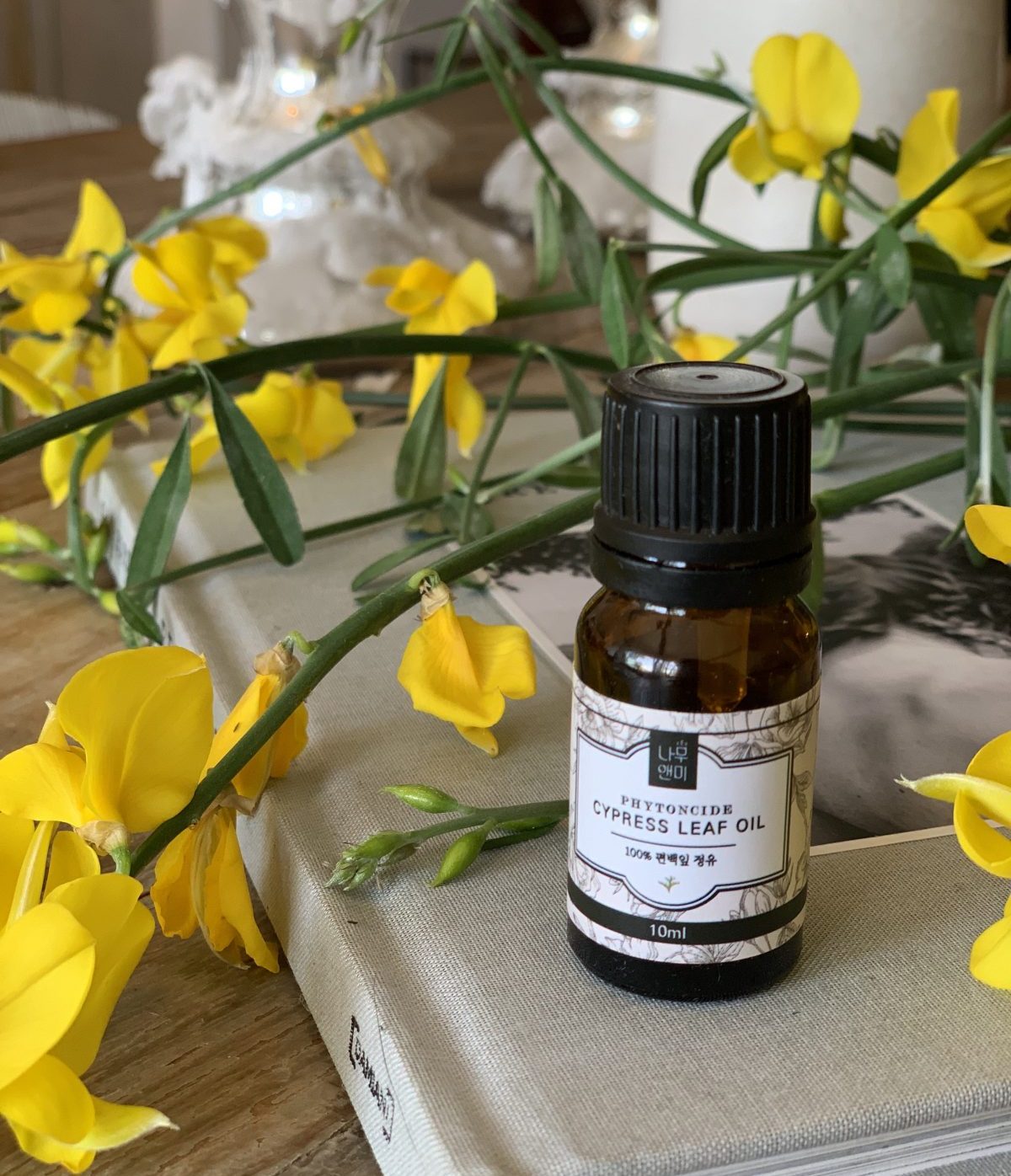Coniferous Essential Oils’ Impact on Your Mood, Cognition, and Nervous System

Rewilding Your Nervous System and Senses
I started reading about phytoncides and Hinoki Cypress Oil a few years back. I possess a bit of knowledge about some of the core essential oils we might see someone plop into their bag: lavender, geranium, eucalyptus, etc., but I’ve not done a super deep dive and found exactly which ones work well with my chemistry and for me. Until recently. It is incredible how mood altering, medicinal, antibacterial, and antimicrobial essential oils can be, and this plant, these Hinoki Cypress oils, and the chemical structure they’re comprised of caught the attention of all of my senses.
Origins:
The Cypress family we’re centered on here resides in Japan. Hinoki essential oil is sometimes referred to as Japanese Cypress Essential Oil or Hinoki Cypress Essential Oil. Hinoki essential oil is steam distilled from Chamaecyparis obtusa, a conifer native to Japan. It’s available, and not quite as abundantly as some of our essential oil staples, as a wood oil, root oil, and needle oil.
As Florence Williams recounts in her jewel of a book The Nature Fix – far more thoroughly and entertainingly than just this excerpt, pure Hinoki Cypress oil is the real deal tree tincture:
“To test the phytoncide theory, Li locked thirteen subjects in hotel rooms for three nights. In some rooms, he rigged a humidifier to vaporize stem oil from hinoki cypress trees, which are common in Japan; other rooms emitted eau-de-nothing. The results? The cypress sleepers experienced a 20 percent increase in NK cells during their stay, and they also reported feeling less fatigued. The control group saw no changes” (p. 29)
Benefits & Science:
Taking the chemistry of Hinoki essential oil just a little further down the foresty path, following is just a glimpse of why you might consider diffusing this dreamy oil or booking a ticket to visit the dense forests of Japan.
NK cells are – yes – Natural Killer cells. These are a good occurrence, despite their menacing name. They are ultimately a white blood cell and a component of our immune system. NK cells play a major role in the rejection of tumors and virally infected cells.
Phytoncides: A Phytoncide is a volatile substance emitted by plants and trees. “Phyton” means “plant” in Latin, and “cide” means to exterminate, and phytoncides are generally the aroma or essence of a nature area or individual plant. Phytoncides are produced to help plants and trees protect themselves from harmful insects and are antibacterial and reduce stress. The best way this is measured is by the lowering of chemicals such as cortisol, and blood pressure.
Atopical skin issues and asthma and allergies can all be aided by Hinoki Cypress Essential Oil, and it acts as an insect repellent. Wow.
Terpenes: These aromatic organic hydrocarbons are a huge reason this oil is medicinal and soothing, mainly the alpha-pinene, beta-pinene, and alpha-terpinene. Terpenes are getting some buzz right now, as they are essential parts of essential oils that are said to aid the effects of cannabis products AND already possess their innate medicinal properties.
Hinoki Cypress Essential Oil can be used topically, inhaled via vapor/aromatherapy, or at times ingested, in small doses.

Some of our favorite Cypress, Hinoki and Terpene Oils:
Namoo & ME Phytoncide Cypress Leaf Oil: Retail $35 for 30ml
Living Libations Cypress, Hinoki Essential Oil: Retail $51 for 15ml
MINERAL’S “BALANCE” CBD Oil, featuring CBD, CBG and terpenes: Retail $130 1 oz








